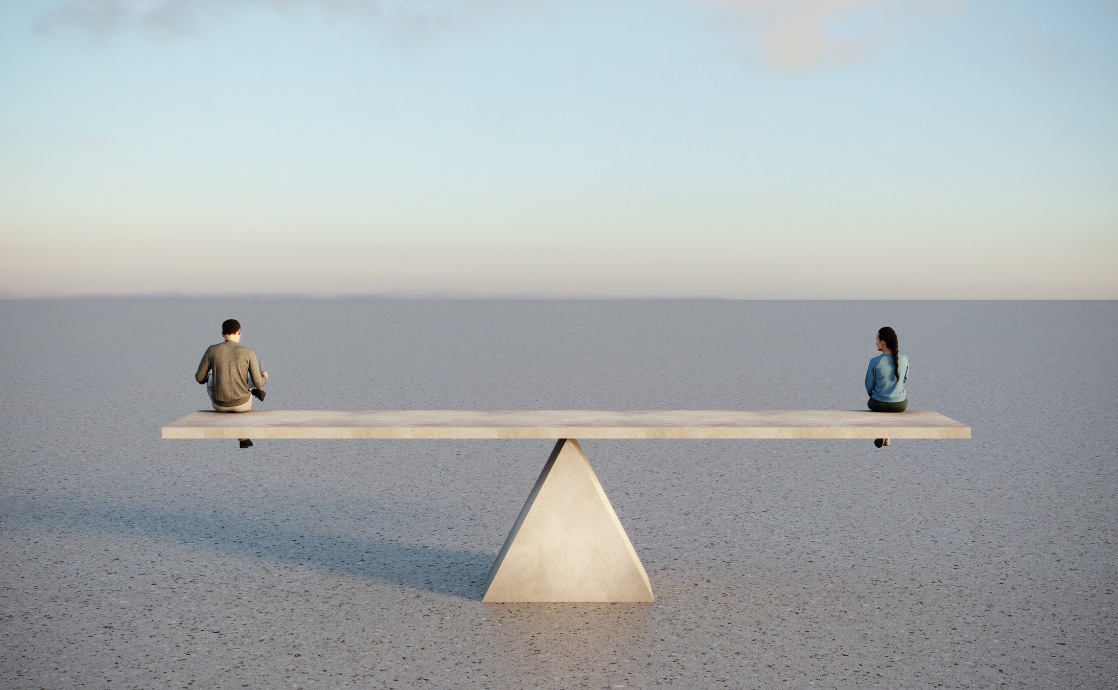In a world characterized by its myriad complexities and challenges, the quest for women’s equality remains an enduring concern. Amidst the clamor for gender parity, one might ponder: What fundamental principles could undergird the vision for women’s equality as espoused by the Baha’i Faith? This query beckons deeper reflection into the teachings that advocate for a world where gender does not dictate one’s rights or responsibilities. What, then, are the tenets of Baha’i teaching regarding women’s equality, and how do they intersect with prophetic insights concerning the future of humanity?
The Baha’i faith, founded in the mid-19th century, emphasizes the oneness of humanity. Inherent in this belief is the recognition that all individuals possess the same innate potential, regardless of their gender. The Baha’i teachings assert that the elevation of women is intrinsically linked to the progress of civilization itself. This premise posits that society cannot achieve true advancement without the full participation of women in all spheres of life. Thus, one vital principle of Baha’i thought is the assertion that women and men are like the two wings of a bird; if one wing is impaired, flight is impossible.
The prophetic undercurrents of the Baha’i Faith further amplify the significance of this principle. Baha’u’llah, the founder, prophesied a future wherein women would occupy positions of influence, contributing equally to societal development. This foresight challenges a contemporary quandary: how do we reconcile the historical challenges faced by women with the prophetic vision of a world unified in equality? The Baha’i perspective offers both a challenge and a roadmap; it encourages individuals to address existing injustices while striving for a future where gender parity is not simply aspirational but realized.
Fundamentally, there exists a multilayered framework that the Baha’i teachings provide to foster women’s equality. First, education emerges as a paramount vehicle of empowerment. Baha’is advocate for the education of girls and women, seeing it as essential not only for individual growth but for the advancement of society as a whole. This emphasis on education surmounts superficial barriers and cultivates an informed populace capable of discerning and addressing its needs. In a world where education remains unevenly distributed, the Baha’i principle manifests as a clarion call to elevate educational opportunities for women everywhere.
Moreover, the teachings of Baha’u’llah dismantle the deeply entrenched prejudices that have historically marginalized women. He emphatically denounced gender discrimination, asserting that such beliefs are antithetical to spiritual progress. The Baha’i writings highlight that the subjugation of women ultimately impedes the collective advancement of humanity. By recognizing the innate dignity and worth of every woman, Baha’i teachings challenge societal norms that perpetuate inequality and injustice.
In exploring the broader implications of women’s equality, one must also consider the socio-political dimensions of the Baha’i teachings. The Faith advocates for the incorporation of women into decision-making processes and leadership roles. This imperative is not simply retrospective; it invokes a forward-thinking vision where women’s voices shape policies and initiatives. Such engagement catalyzes societal transformation, embodying the belief that diverse perspectives enrich discussions and produce more equitable outcomes. However, an intrinsic challenge emerges: how do we encourage institutions, both governmental and non-governmental, to enact policies that reflect these egalitarian ideals?
Furthermore, Baha’i teachings extend the concept of equality beyond mere legal frameworks. They advocate for a change in societal attitudes, necessitating a cultural shift that values women’s contributions and recognizes their agency. This deeper transformation, however, hinges upon addressing prevailing stereotypes and misconceptions regarding gender roles. Engaging communities in dialogues about the inherent capabilities of women is crucial. How can we foster such dialogues in spaces that have historically excluded women’s perspectives? The Baha’i approach suggests that communication, grounded in respect and understanding, is essential.
Exploring the intersections of gender equality and spiritual principles yields profound insights. The unity of mankind is a recurring theme in Baha’i literature, intimating that gender equality is a divine mandate. This unity does not suggest uniformity; rather, it celebrates the diversity of human experience. By honoring the uniqueness of both genders, we pave the way for collaborative efforts that reflect the collective wisdom of society. Yet, how can we ensure that this unity translates into tangible actions that promote equality? The call to action rests upon a commitment to nurture relationships that uplift all voices, fostering collaboration between genders.
Ultimately, the vision of women’s equality within Baha’i teachings is a profound testament to humanity’s capacity for growth and evolution. The acknowledgment of women’s rights is more than a theoretical construct; it embodies a transformative agenda that has implications for every facet of human life. As individuals grapple with the challenges of gender inequity, they are encouraged to draw upon the foundational principles of the Baha’i Faith—education, empowerment, and the intrinsic equal worth of women and men. In doing so, they contribute to the unfolding narrative of a world enriched by the contributions of all its members.
As we venture into a future illuminated by the promise of equality, one must steadfastly ask: Are we prepared to engage with these teachings and enact the changes necessary for a more just and equitable world? The challenge lies before us; the principles are articulated, and the prophetic vision beckons. The responsibility now rests upon our collective shoulders to realize the promise of equality, crafting a world where the contributions of every individual are valued and celebrated.
